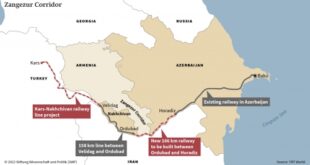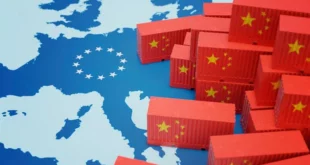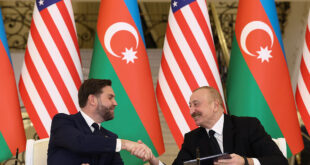 Thirty percent of the 101,344 newborns in Moscow last year were children of migrant parents from the former Soviet republics and other foreign countries, a share far greater than these groups now form in the city’s population and one that means their percentage of its residents will increase even if in-migration slows.And because this figure includes only those births officially registered, something illegal migrants often do not do, and only those which took place in the city, something this same group sometimes avoids by having the mother travel home before giving birth, it almost certainly understates rather than overstates this trend.
Thirty percent of the 101,344 newborns in Moscow last year were children of migrant parents from the former Soviet republics and other foreign countries, a share far greater than these groups now form in the city’s population and one that means their percentage of its residents will increase even if in-migration slows.And because this figure includes only those births officially registered, something illegal migrants often do not do, and only those which took place in the city, something this same group sometimes avoids by having the mother travel home before giving birth, it almost certainly understates rather than overstates this trend.
After the city’s statistical office released these data last week — including a partial ethnic breakdown of the non-Russian births — there has been an intense discussion about them in the ethnic communities who welcome this development, anti-immigration groups who fear and oppose it, and Moscow officials who are seeking ways to cope.
Among ethnic groups whose leaders saw this as a positive development, especially given recent attacks against their members, are the Azerbaijanis, who many say now form the largest minority there (http://www.day.az/news/society/107225.html and http://www.echo-az.com/zarubej06.shtml).
Those upset by this report included the Movement against Illegal Immigration (DPNI), who yesterday reposted a Lujkovu.net report about this data and the ways in which they believe the city authorities are encouraging this change rather than defending the city’s “Russian” character (http://www.lujkovu.net/news_moscow/news_247.htm).
But the most interesting aspect of this discussion involves the statements of Moscow city officials on what they are doing to protect the growing non-Russian component of the city and to integrate its younger members via the educational system into the city’s life.
Yevgeny Bunimovich, the head of the Moscow City Duma commission on science and education, announced at the end of last week that the city will provide schooling and medical care to these children, regardless of whether their parents are legal or illegal immigrants (http://city-fm.ru/news/?id=272112).
At the same time, Yuri Goryachev, the deputy head of the city’s educational department, said that there are already some 70,000 children of immigrants, who arrived between 2001 and 2006, studying in Moscow’s schools. This new commitment will almost certainly increase their number.
Meanwhile, city officials also announced that they were setting up a special investigative group to track down the murderers of the citizens of other countries living in Moscow, a kind of crime that has increased dramatically over the last several years (http://xeno.sova-center.ru/45A2A1E/A940978).
The report that immigrant children now form such a large share of the city’s newborns also appears likely to exacerbate two broader debates there. On the one hand, it will certainly lead to more discussions as to whether non-Russian enclaves are forming there, something most non-Russians deny but many Russians nonetheless believe in.
And on the other, it will prompt more analysts and politicians to ask whether Russia may soon face the kind of inter-ethnic and inter-confessional violence that has taken place in Paris and other French cities. For a useful discussion on how Russia compares in this regard, see http://www.polit.ru/lectures/2008/02/07/vyshnevsky.html.
While both Russian nationalist groups and politicians have long insisted that such clashes are increasingly likely, most analysts have stressed that Russia’s situation is fundamentally different in that most of its migrants speak Russian before they arrive and quickly integrate, unlike Arabs arriving in France.
But as the number of non-Russians in Moscow increases, the ability of at least some of their communities to retain their distinctiveness does as well, a development their member may be proud of but one that city officials are having to deal with, all the more so because of growing Russian nationalist opposition to immigration.Â
By Paul Goble
Source: Window on Eurasia
 Eurasia Press & News
Eurasia Press & News



